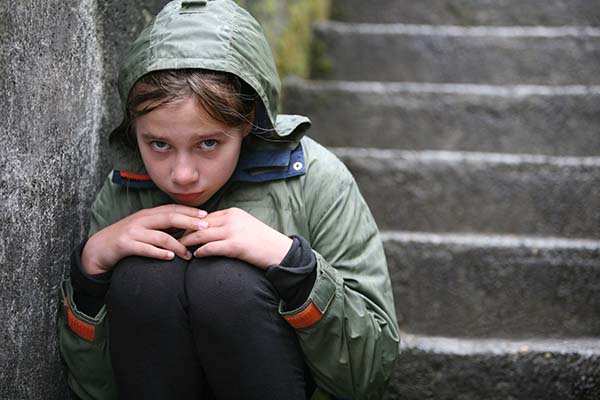Dealing with a parent’s suicide is horribly difficult at any age. For a child, many complicated feelings arise they don’t yet have the experience to handle or even name. While we can’t protect the children we love from these traumatic and grief-filled thoughts and feelings, there are ways we can help them cope as they work toward healing.
While we refer here to the loss of a parent, children need help coping with the grief after any close person commits suicide such as a grandparent, sibling, aunt, uncle, or friend.
Talk about emotions openly
As children grieve the loss of their parent, they will go through many complicated feelings. They may feel angry at their parent for leaving them, guilt for not having saved them, resentful at the extra responsibility placed on them in caring for younger children, relief after a parent’s prolonged illness, scared for what will happen to them in the future, and lost without that familiar parental support. Still in the stages of learning to name and handle these emotions, children may feel very confused as they learn to navigate unfamiliar territory and react by hiding away or acting out.
To help children cope with this myriad of emotions, let them know that all feelings they are having are acceptable and that they can share with you or another trusted adult anything they may be experiencing.
Give them different ways to express themselves
Depending on the age of the child, remember they may not be able to express themselves with clear words but may need to draw or play out their feelings in another way. Without this avenue of expression, whether through words or a form of play, children tend to hold things inside and blame themselves for their parent’s suicide. This can result in damaging behavior and mental health issues as they grow and develop into adults. By helping them talk through their feelings, you can address these thoughts and help them know the suicide is not their fault.
Explain mental illness
Explain to a child their parent suffered from a mental illness, that something was wrong with their brain that changed the way they thought and felt. Make sure they understand nothing they could have said or done could have fixed the problem and the suicide was not something they caused. It may even be worth repeating as children sometimes need to hear something more than once to really sink in.
Help the child move forward
Soon after the suicide, help the child get back to their normal routine of school and activities. This will help their sense of safety, predictability, and security. Also make sure they are surrounded by a strong family and social network who can keep an eye on the child and be there for them whenever they need to talk. As the child ages and enters new stages of life, they may need to deal with a new piece of their grief so continue to be there and listen.
Depending on the family situation, there may be other issues present such as drug use, addiction, mental illness, abuse, and poverty. Whether a child is dealing with just the suicide or with multiple issues, many children benefit greatly from seeing a counselor who is experienced in walking with children through the grieving process and other family issues.
Keep an eye out for deeper trauma
Some children, especially those with previous trauma or who are prone to anxiety, need more care to deal with their loss. This need may be expressed through problematic behavior such as withdrawal or acting out. Let the child know they are loved and cared for no matter how they are reacting in those moments. It can, at times, be hard to distinguish what is problematic and what is healthy grieving so as a child grapples with their parent’s suicide, keep an eye out for these changes:
- feelings of deep grief don’t dissipate over time
- the child withdraws verbally/socially/ or physically from previously loved people or activities
- refusal to go to school
- changes in eating or sleeping habits
- hurting themselves or others
- Obsession or avoidance of the parent or suicide event
If a child is not already talking with a counselor when exhibiting these behaviors, it is a good time to start. When a child’s parent or other close loved one commits suicide, that person is also more likely to commit suicide so helping a child grieve in a healthy way is of utmost importance for their future mental and physical health.
Continue helping the child as their grief changes
Just like adults grieving, grief changes over time for children and they will express it in different ways at different times as they walk though the process and grow up without that parent present. Continue to be there for them, listen to what they say and how they act, and get help when needed. Remember, you are likely also grieving and need ongoing support and someone to talk to. Get the care you need so you can also help your child deal with the loss of their parent.

